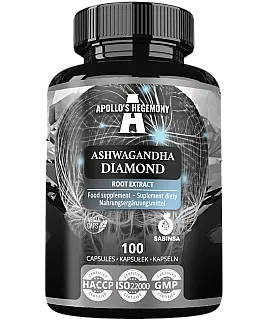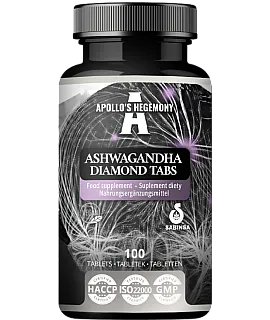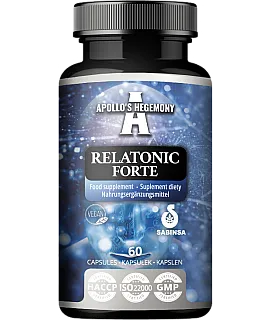Ashwagandha - a natural supplement for stress and insomnia
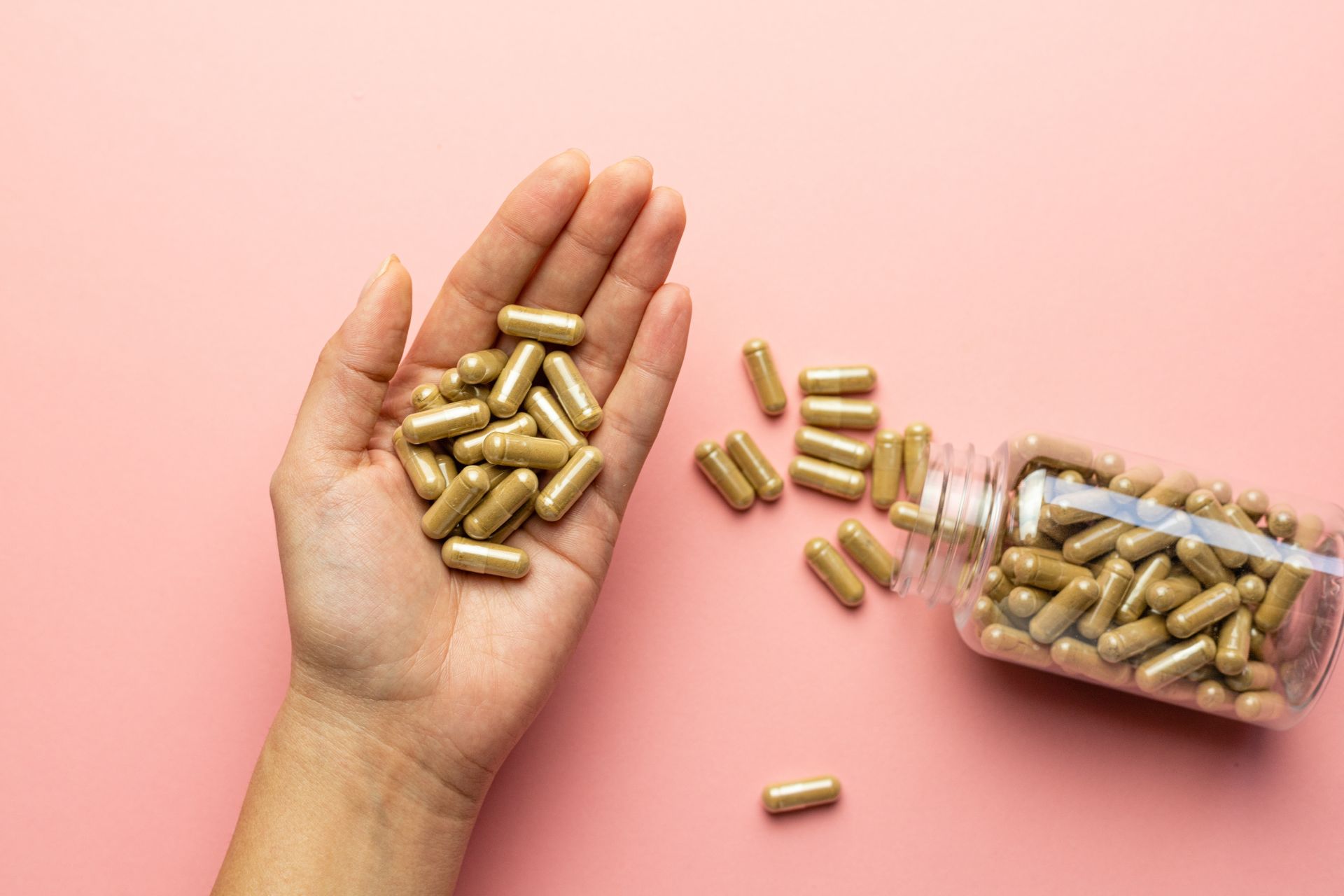
Long-term exposure to stress can disrupt a person's mental and physiological balance, thus leading to other diseases such as depression, hypertension, heart disease and metabolic disorders. The same is true for insomnia. In the case of the Ashwagandha herb, the properties of its components help alleviate both problems, thereby improving quality of life and enhancing preventive health. What else can this multifunctional supplement offer us? Read to the end to learn about the entire package of Ashwagandha benefits!
- Health benefits of Ashwagandha
- Adaptogenic and anti-stress properties
- Calming and antidepressant properties
- Sleeping properties
- Procognitive and neuroprotective properties
- Pro-sports properties
- Properties for the thyroid gland
- Ashwaganda properties from the Ayurvedic tradition
- What will Ashwagandha NOT work for?
Health benefits of Ashwagandha
Ashwagandha is a small shrub in the solanaceous plant family. Various parts of it (but mainly the roots and leaves) have been used for thousands of years in the Hindu medical system - Ayurveda. There it is treated as a general tonic and "Rasayana," or remedy for rejuvenation and strengthening of the body. Today we have hundreds of studies using Ashwagandha, which describe its exact actions and properties in various areas of health. Let's have a little overview of these most important properties of Ashwagandha.
Adaptogenic and anti-stress properties
Historical Ayurvedic texts, animal studies and clinical trials describe Ashwagandha as a safe and effective adaptogen.
The current definition of an adaptogen is"... a class of metabolic regulators that enhance the body's ability to adapt to and avoid damage caused by environmental factors." Ideally, an adaptogen should:
-
reduce stress-induced damage,
-
be safe and produce beneficial effects even with more than the required number of administrations,
-
be free of any negative effects, such as withdrawal syndromes,
-
not affect normal bodily functions more than necessary.
Ashwagandha is one of the adaptogens that has all the above-mentioned characteristics. It exerts its effects mainly through modulation of the hypothalamic-pituitary-adrenal axis, as well as through GABAergic and serotonergic pathways. These same mechanisms may also affect overall well-being.
Examples of rationale for the adaptogenic effects of Ashwagandha from the literature:
- significant increase in swimming time by rats,
- prevention of stress-induced stomach ulcers,
- slows the loss of cortisol and vitamin C in the adrenal glands during prolonged physical activity.
Calming and antidepressant properties
A study in rats compared the anti-anxiety effects of Ashwagandha with Lorazepam (an anti-anxiety drug from the benzodiazepine group) in 3 different tests. This study noted that Ashwagandha and Lorazepam produced comparable effects. One of the test methods was to measure the concentration of tribulin in the brain, which is a clinical marker of anxiety levels.
Supplementation in humans also produced great results in studies. Improvements in depressive and drug symptoms were seen in several studies in which Ashwagandha extracts were supplemented for at least 8 weeks. Suggested mechanisms of action behind this include modulation of the serotonin and GABA systems and control of brain inflammation.

Sleeping properties
The calming effects of Ashwagandha are often used to support sleep quality. The plant's Polish name, Vitania sluggisha, is also very suggestive.
A review of human studies using Ashwagandha concluded that supplementation improved various rates of insomnia in different study populations and age groups.
In another fairly fresh and good quality meta-analysis, which included 5 clinical trials, it was deduced that, provided at least 600 mg of the extract was used daily for at least 8 weeks, Ashwagandha produced significant improvements in sleep. The effects were best in adults who had a diagnosis of insomnia. Improvements in alertness and reduced anxiety levels in the morning were also noted.
Procognitive and neuroprotective properties
Ashwagandha is not a typical brain booster - it does not have a direct energizing effect and does not have an immediate effect. Instead, it can be considered as a preventive brain support, mainly due to its multiple neuroprotective effects. With regular supplementation, one can also expect a slight improvement in memory and greater motivation to work, mainly due to the restoration of brain homeostasis (anxiety reduction and anti-inflammatory effects).
There are dozens of studies showing that Ashwagandha slows, stops or reverses neuronal atrophy and loss of synapses. This relates to neuroprotective effects that are relevant in Alzheimer's, Huntington's, Parkinson's and Creutzfeldt-Jakob diseases, among others.
Pro-sports properties
Can Ashwagandha give you more strength and muscle mass? It is possible! In an 8-week study on healthy men who had previously had little exposure to resistance training, supplementation with Ashwagandha root extract (2x daily at 300 mg) was tested against a placebo. Participants performed regular strength training during the study. They were tested to see how supplementation would affect muscle strength and mass, as well as testosterone levels, muscle recovery rate and body composition (Benefits of adaptogens on increased physical performance). Muscle strength was measured by 1 repetition with maximum weight in the bench press and leg extensions - in both exercises Ashwagandha produced better strength gains than placebo. Similarly, in terms of muscle mass - the Ashwagandha-supplemented group had greater gains in arm and chest circumferences. A reduction in training-induced muscle damage was noted, as shown by creatine kinase stabilization. There was also a better increase in testosterone and a greater decrease in body fat %.
Some studies have shown an increase in physical endurance with Ashwagandha supplementation. An often-cited study showed that Ashwagandha increased swimming performance in rats, as judged by comparisons of swimming time during a physical endurance test. Ashwagandha-supplemented animals showed a significant increase in swimming time compared to the control group. The control group of mice swam for an average of 385 minutes, while the animals given the supplement swam for an average of 740 minutes. Thus, swimming time was almost twice as long in the rats that received Ashwagandha. This herb, when the rats swam for about 5 hours, prevented excessive depletion of cortisol and ascorbic acid in their adrenal tissue.
It is worth mentioning that Ashwagandha is extremely popular among athletes. The above data shows that it is fully justified, and Ashwagandha can support adaptation to heavy physical activity.
Properties for the thyroid gland
Ashwagandha has a good reputation as a natural way to support thyroid function. This is also the rationale in clinical studies. One looked at how 600 mg of Ashwagandha root extract per day would affect the course of subclinical hypothyroidism. Subclinical is the "latent" form, in which TSH levels rise, but no bothersome symptoms yet appear. Normalizing thyroid function at this stage can often halt the progression of hypothyroidism.
The study involved 50 people between the ages of 18 and 50 with TSH results between 4.5 and 10 μIU/L. The trial lasted eight weeks. The results showed that Ashwagandha supplementation, compared to placebo, yielded significantly lower TSH scores and higher thyroid hormone scores (T3 and T4).
Ashwaganda properties from the Ayurvedic tradition
Ayurveda has been practiced in India since around 6000 BC. Ashwagandha has been in it for most of that time. Traditional Ayurvedic uses include use:
- for nervous breakdowns,
- for insomnia,
- as a strengthening tonic for children (served with milk),
- and for strengthening for seniors,
- for rheumatic pains,
- for constipation,
- as an ingredient in preparations I snake or scorpion venom,
- for support of sexual function.
What will Ashwagandha NOT work for?
Ashwagandha is not a typically energizing agent. True, it can reduce fatigue, but it is more of a restoration to a baseline state. You can't expect a boost like that given by Rosacea, Korean Ginseng, much less caffeine. In other words, Ashwagandha may modulate energy and vitality levels, but it is unlikely to raise them above baseline levels.
Ashwagandha is unlikely to help when supplemented occasionally. For optimal results, it needs to be used daily, preferably for several months, and noticeable effects usually come after a few days of use. For occasional stress and nerve reduction, you need to choose something that works temporarily, such as l-theanine.
Sources:
-
Singh N, Bhalla M, de Jager P, Gilca M. An overview on ashwagandha: a Rasayana (rejuvenator) of Ayurveda. Afr J Tradit Complement Altern Med. 2011;8(5 Suppl):208-213. doi:10.4314/ajtcam.v8i5S.9
-
Chandrasekhar K, Kapoor J, Anishetty S. A prospective, randomized double-blind, placebo-controlled study of safety and efficacy of a high-concentration full-spectrum extract of ashwagandha root in reducing stress and anxiety in adults. Indian J Psychol Med. 2012;34(3):255-262. doi:10.4103/0253-7176.106022
-
Speers AB, Cabey KA, Soumyanath A, Wright KM. Effects of Withania somnifera (Ashwagandha) on Stress and the Stress-Related Neuropsychiatric Disorders Anxiety, Depression, and Insomnia. Curr Neuropharmacol. 2021;19(9):1468-1495. doi:10.2174/1570159X19666210712151556
-
Cheah KL, Norhayati MN, Husniati Yaacob L, Abdul Rahman R. Effect of Ashwagandha (Withania somnifera) extract on sleep: A systematic review and meta-analysis. PLoS One. 2021;16(9):e0257843. Published 2021 Sep 24. doi:10.1371/journal.pone.0257843
-
Wankhede S, Langade D, Joshi K, Sinha SR, Bhattacharyya S. Examining the effect of Withania somnifera supplementation on muscle strength and recovery: a randomized controlled trial. J Int Soc Sports Nutr. 2015;12:43. Published 2015 Nov 25. doi:10.1186/s12970-015-0104-9
-
Sharma AK, Basu I, Singh S. Efficacy and Safety of Ashwagandha Root Extract in Subclinical Hypothyroid Patients: A Double-Blind, Randomized Placebo-Controlled Trial. J Altern Complement Med. 2018;24(3):243-248. doi:10.1089/acm.2017.0183
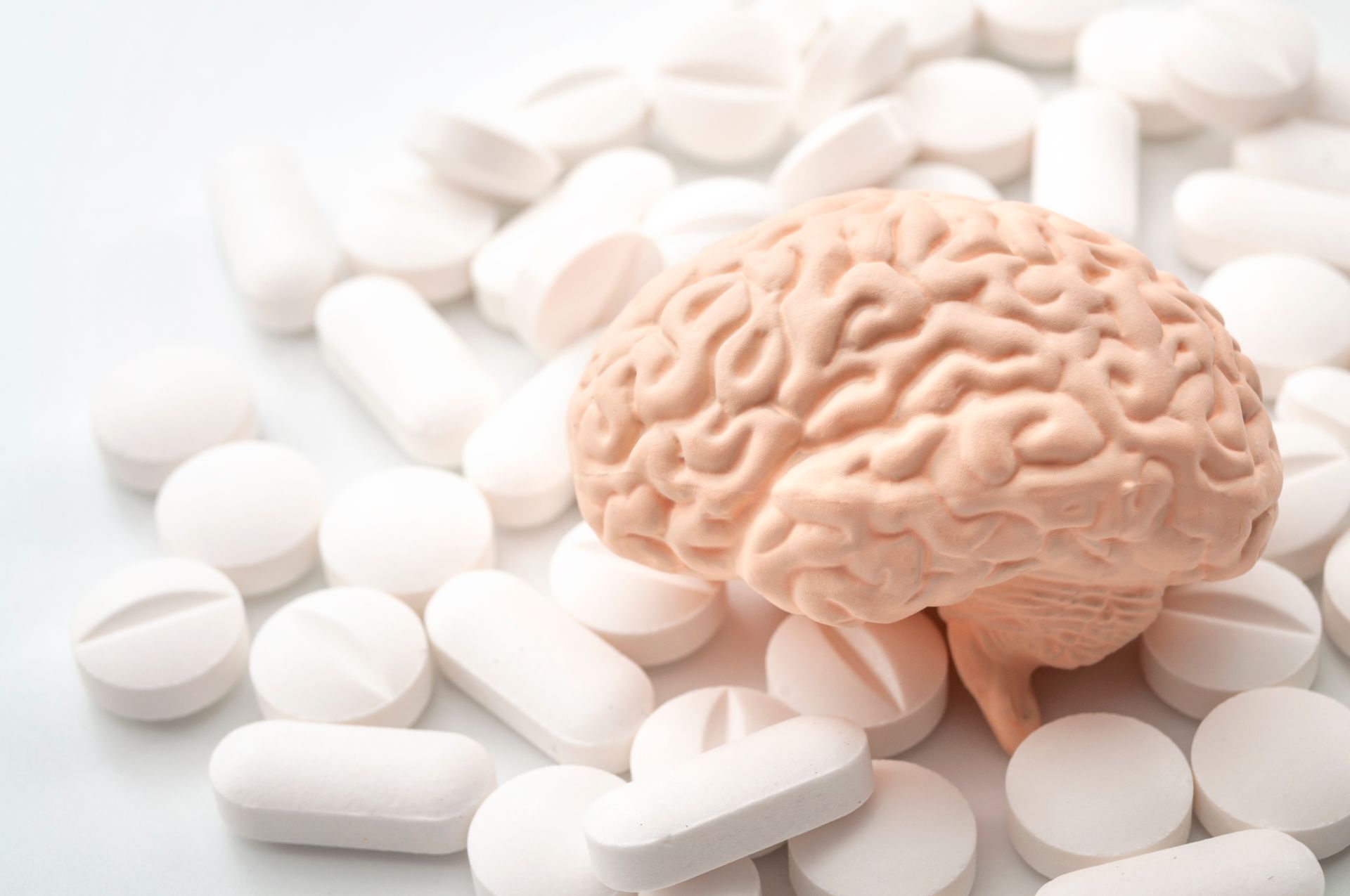 ⮜ Previous article
⮜ Previous article
Nootropics - what are they and what properties do they have?
 Next article ⮞
Next article ⮞
